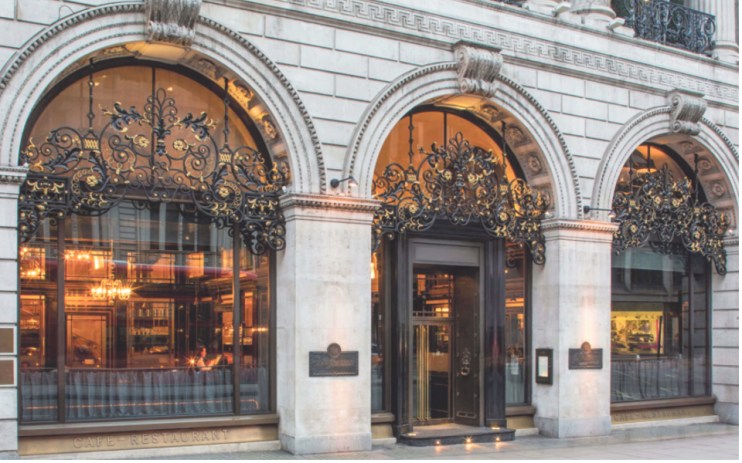Corbin & King has fallen: What does it mean for The Wolseley, Zedel et al?

You can be forgiven for not following the corporate intricacies of the hospitality sector, but last week was significant. On Friday, it was announced that Corbin & King, the restaurant group founded in 1981 by the eponymous Chris and Jeremy, had been bought out of administration by Minor International, the vehicle of American-born Thai billionaire William Heinecke. Minor had forced the group into administration, owning 74 per cent, and now it has complete ownership for the sum of £60 million.
So what? Well, Minor’s victory meant that Jeremy King had failed in his attempt to buy the group he founded, and is no longer an equity partner. He remains CEO, and Corbin a director, but Minor has announced it is “now time to focus on growing the business in the UK and internationally without the involvement of Messrs Corbin and King.”
This matters because Corbin & King controls some of London’s finest and most high-profile restaurants. The Wolseley, the Delaunay, Brasserie Zédel, Colbert, Bellanger… these cut a distinctive swathe through the fine dining scene. Food critic Jay Rayner has a residency at Zédel with his jazz band, and the Wolseley was beloved of AA Gill and Lucien Freud (whose favourite table was left empty and draped in black when his death was announced).
The corporate response is that this will continue. Although Jeremy King and Chris Corbin will exit stage left (pursued by a bear market?), the group still has a significant footprint in the capital. But Minor is also talking about “growing” its “iconic brand portfolio”, both in the UK and abroad. This is the inevitable collision of passion and business.
Here is not the place to dwell on the handling of hospitality and entertainment brands, but it is, perhaps, the place to reflect on what King and Corbin have done so well. I confess that I do not (yet) lead the kind of lifestyle in which my favourite table will be draped in black when I die, but I have visited some of their restaurants over the years. I proposed to a girl in the Wolseley over afternoon tea (not randomly, I was dating her), and I’ve often used Colbert on Sloane Square for semi-professional assignations.
The portfolio that Jeremy and Chris created did an almost impossible thing: it provided accessible glamour without scaling the most perilous heights of price. Only a fool or a rich man would argue that the Wolseley or the Delaunay is “affordable”, but they are not beyond the reach of civilians, not populated solely by starlets, bankers and moguls.
The glamour, however, is important. It is not just the trappings — the bowler hatted doormen outside the Wolseley — but the clientèle. Because the food is good, even great at times, and the service of a high standard, they attract and retain high-profile and high-spending patrons, whose presence is part of the attraction for us mortals. You can see these gods and goddesses, and even some lesser or faded deities, close up and in the wild, and you are, for a time, having the same experience as them.
But Corbin & King also understood what the Platonic ideal of a restaurant should be. Going out for a meal, if you are doing anything but satisfying basic requirements of hunger and thirst, should have a whiff of occasion about it. Whether you turn up in your best suit or a pair of jeans and trainers (yes, I’m judging), you should feel that you are being treated, that it is an event, and the Delaunay and Zédel and the rest captured that perfectly, providing a sense of theatre and occasion.
Perhaps Minor will preserve some essence of Corbin & King in its new arrangements. But there is a feeling among famous patrons (and staff, many of whom were devastated by Friday’s news) that something valuable, perhaps priceless, has been lost. And London should worry too: these restaurants have been among the best cheerleaders for the West End as a glamorous and stylish destination. We lose them at our peril.
